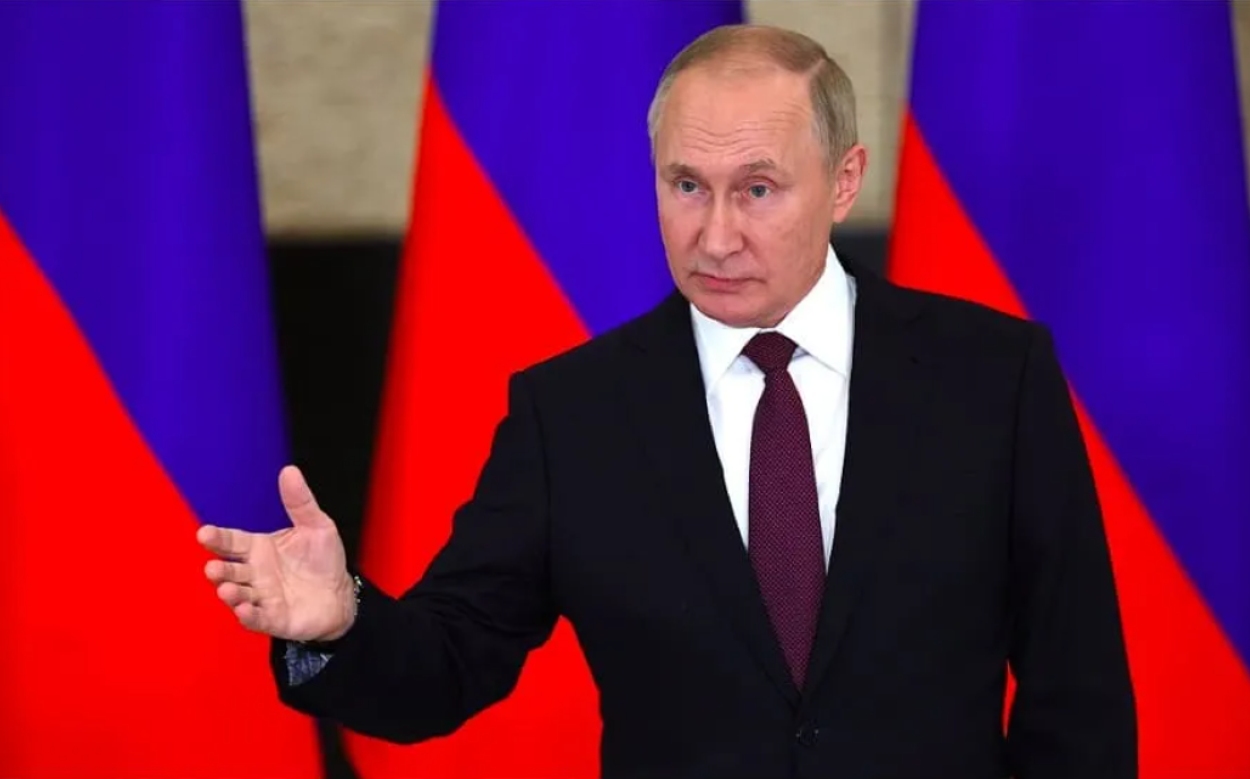The two-year-long Ukraine War has sent out a clear message that wars do not help any side. Both sides see huge losses of human resources. Do we really need a war to justify ideologies?
At the Samarkand summit of SCO, held on September 16, 2022, Prime Minister Narendra Modi directly told President Putin—when they met on the sidelines of the conference—that “this is not the era of war.”
He meant the Ukrainian war. Putin chuckled and looked aside. Perhaps he thought the Indian Prime Minister’s words were not significant.
Indian and Russian friendship is time-tested. Its roots are deep and strong. This friendship has gone through the litmus test not once, not twice, but several times, and every time, it has proved true.
PM Modi’s advice to Putin was not an upbraiding; not at all. It was a very sincere and statesmanlike observation and Modi said it frankly because he knew he was talking to a great friend of India. Russian interest was uppermost in his mind.
The Ukraine war has stretched on to two years, and its end remains elusive. The losses on both sides, when calculated, will be mind-boggling. In particular, the loss of human resources is most lamentable.
The question is: Is this entire catastrophe justifiable? In other words, should proxying become acceptable for contemporary society? We don’t think it should. It is not the clash of civilizations as had been predicted by some thinkers in the West; it is a clash of ideologies and approaches. It is a struggle for one-upmanship. And a war fostered by the theory of “I am the king of the forest.”
Horrendous Consequences
We received news recently that some Indian citizens were lured by Dubai-based agency recruiting laborers for jobs in foreign countries. The applicants were charged a hefty amount of INR 300,000 for providing them with jobs.
But when the applicants arrived in Moscow, the airport authorities seized their travel documents, including passports. One of them, who was told he would be given the job of a house cleaner, was conscripted and sent to the Ukraine war front. He cursed himself for having fallen into a trap.
The Indian Embassy in Moscow has been informed of the situation. It said it had received complaints from some Indian citizens and was investigating.
This action demonstrates Russia’s desperation to fill the manpower shortfall in the war in Ukraine. It has gone to the extent of duping and later conscripting laborers from foreign countries for the war. Though the duping and conscription may not be the handiwork of state agencies, they nevertheless reflect the serious situation the Ukrainian war has created.
We may cite another example in the same vein. Reports indicate that Israel is facing an acute shortage of manpower to run its industries. Tel Aviv has decided to import about 70,000 laborers from foreign countries to run its industries. India has been given a quota of 10,000 recruits, and we have learned that the recruitment process has already begun.
We do not discourage people from moving in search of better living standards. But we need to understand what war means in contemporary times. A war, whether thrust or initiated, is a curse, and its consequences are disastrous even to people living far away from the war theatre.
How much the contemporary youth hate and abhor war will be understood by the ways they want to escape the stranglehold of conscription in the name of war for national integrity and sovereignty.
Up to one million Russians are thought to have fled being conscripted for the war. South Korea is experiencing a dramatic surge in asylum seekers from Russia, per a recent government report cited in the Korea Herald.
In 2023, over 5,000 Russian nationals submitted refugee applications, a five-fold increase from the previous year’s total of 1,038. This surge nearly matches the total number of Russian asylum seekers recorded over 26 years, from 1994 to 2019.
Russian asylum seekers are fleeing Russia amid the war against Ukraine. President Vladimir Putin’s military mobilization of 300,000 individuals in September 2022 pushed many Russian men to avoid conscription by seeking refuge abroad. Up to one million Russians had left the country, an Economist report stated in August 2023.

In February 2023, Politico reported that two Russian citizens who had fled to evade conscription had been stranded at Incheon International Airport near Seoul since October. The men were granted the opportunity to enter Korea, but the asylum-seeking process itself could take years, AFP reported at the time.
The influx of asylum seekers isn’t limited to Russians alone. Last year, South Korea reported 18,838 refugee applications, marking a 63% increase from the previous year.
Nationals from Kazakhstan (2,094), China (1,282), Malaysia (1,205), and India (1,189) also contributed to the surge. Russian applicants accounted for 30.5% of the total appeals, Korea Bizwire reported.
The majority of asylum applications cited “political opinions” as the primary reason for seeking asylum, with 4,580 applicants objecting to conscription, 2,665 concerned about religious issues, 1,205 worried about their membership in specific social groups, 887 seeking to reunite with their families, and 719 citing racial factors.
Despite the surge in asylum applications, South Korea’s approval rate for refugee status remains low. Of 5,950 cases evaluated last year, only 1.7 percent—or 101 applicants—were granted refugee status.
The Organization for Economic Cooperation’s average approval rate is 24.8 percent, the Korea Herald reported, making South Korea a particularly restrictive country regarding asylum applications.
In conclusion, we are faced with the stark reality that the youth do not want a war and do not want to get killed for unclear objectives. Nationalism has lost much of its sheen in the wake of multilateralism. Keeping that in mind, those involved in the Ukrainian war would have to reassess their perceptions and keep pace with the march of the times.
- OPED By KN Pandita.
- Prof. Pandita (Padma Shri) is the former director of the Center of Central Asian Studies at Kashmir University. Views Personal Of The Author.
- Follow EurAsian Times on X (formerly Twitter)




